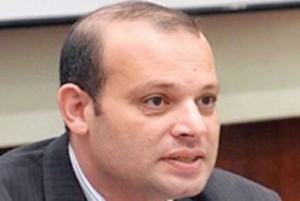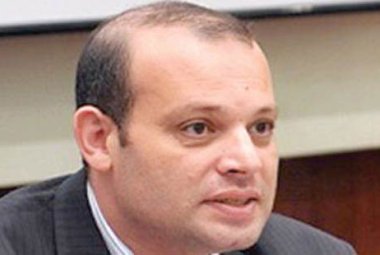
By: Lamia Nabil
Egyptian exports, excluding petroleum products, grew 12% to reach EGP 11.26bn in January, compared to EGP 10.28bn in January 2012.
Minister of Industry and Foreign Trade Hatem Saleh said that non-petroleum exports increased due the country’s various export councils recording positive results. The value of the Agricultural Export Council’s (AEC) exports increased to EGP 1.52bn last month compared to EGP 849m in January 2012; while Textile Export Council exports increased to EGP 427m last month compared to EGP 344m; the Egyptian Leather Export Council reported a year-on-year jump to EGP 94m last month.
The Export Council for Building Materials, Refractory and Metallurgy Industries (ECBM) saw a jump in the total value of exports to EGP 3.447bn in January 2013, up from EGP 2.425bn in January 2012. The Home Textile Export Council reported that exports increased in value to EGP 345m January 2013, compared to EGP 297m in January 2012.
Saleh mentioned that the ministry had created a strategic plan to achieve increases in the other export sectors, but as a result of political instability this could not yet be achieved.
He also confirmed that the ministry works closely with export councils to meet the needs of the export sector and to help them overcome the current problems, adding that cooperation between the ministry and the export councils will remove obstacles. He also stressed the importance of Egyptian exports as a primary source of foreign currency.
In addition, the minister said that some sector exports declined in January. The Egyptian Furniture Export Council (EFEC) reported EGP 176m in exports last month, a $10m drop year-on-year. The Chemical and Fertilisers Export Council also reported a drop to EGP 844m from EGP 2.94bn the year previous. Garment Export Council’s exports fell in value to EGP 626m from EGP 768m, The Food Export Council’s (FEC) exports fell to EGP 1.383bn from EGP 1.66bn, The Engineering Export Council of Egypt (EEC) reported a drop in exports to EGP1.132bn from EGP 1.71bn, The Export Council Of Medical Industries’ (ECMI) exports shrank in value to EGP 191m from EGP 198m, and The Books Export Council’s exports dropped in value to EGP 6m from EGP 32m.
The most important foreign markets for Egyptian exports in January were those of Arab countries, to which export values reached EGP 4.108bn last month, and the European Union (EU) which purchased some EGP 2.695bn in Egyptian exports.
Asia, which purchased EGP 1.2bn in Egyptian exports, was in third place. Africa followed in fourth place, purchasing EGP 987m in exports.
The total value of exports to the US sat at EGP 513m, compared to EGP 718m in January 2012.
Saudi Arabia purchased EGP 1.189bn in Egyptian exports; Libya purchased EGP 922m; Turkey, EGP632m; Lebanon, EGP484m; the UK, EGP 415m; and France, EGP 404m.
Ihab Derias, chairman of the Egyptian Furniture Export Council (EFEC), said that it is difficult to judge January’s results because the council’s work is mostly seasonal. In 2012 the council achieved an increase of 18% from 2011 levels due to successful exports to its primary market, Arab countries—particularly Saudi Arabia, the UAE, and Qatar.
The council has implemented a new strategy to expand into the African market by preparing a trade mission to Ethiopia, and has targeted the American market through the Egyptian-American Export Company. Next May the council will participate in the annual hospitality furniture show.


